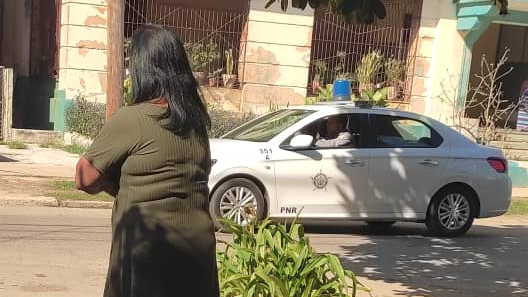The independent Cuban platforms Observadores de Derechos Electorales (ODE: Electoral Rights Observers), Comisión Cubana de Defensa Electoral (COCUDE: Cuban Electoral Defense Commission) and Ciudadanos Observadores de Procesos Electorales (COPE: Cuban Electoral Process Observers) complained that the "elections" held on March 26 in Cuba were the most irregular in the country since 1976.
The platforms pointed out that the electoral authorities "normalized formal anomalies, in violation of Electoral Law 127, observed in the last electoral processes" such as the "non-publication of the voter lists the required time in advance, polling stations at which these were not placed in view of the voters, and polling stations at which unregistered persons voted."
In some cases, the platforms explained, in a joint statement sent to DIARIO DE CUBA, "voters entitled to all their civil and political rights were stricken from the rolls, as they were subject to the requirement —contradictory to the Law and the Constitution— of effective residence, even though these were Cuban citizens whose legal residence in the country is recognized."
"Secondly, the exceptional practice of taking ballots to voters' homes was accepted as normal, a form of coercion of the vote through a procedure designed for people with disabilities or who, due to specific circumstances, are unable to go to the voting centers. Doctors and patients also reported that at hospital there was coercion to vote as well."
The platforms also referred to "the ‘innocent’ and ‘vicarious’ practice of coercing people to vote using children in the so-called Tun Tun Operation."
"Thirdly, a practice was introduced controverting the civic nature of voting, according to which voting should arise from the social commitment of voters to the political system, not in response to promises of material benefits," the platforms pointed out, condemning "electoral appeals on social media, offering prizes like computers, cell phones or paid vacations, in addition to the holding of fairs selling goods at cut-rate, under-market prices to instantly incite people to vote, a political practice that undermines civic and citizenship values."
In addition to all this, fourthly, there was the repression unleashed against activists and observers who tried to monitor the vote count "as is authorized and endorsed by the Law, and is congruent with the call made by Alina Balseiro, President of the National Electoral Council, for all citizens to oversee the vote count."
Contradicting this appeal, "at many polling stations citizens were denied entry and many, also activists, were detained, their homes were besieged, and they were threatened with strong reprisals, and even beaten, for exercising their constitutional rights."
Due to all of the above, the platforms expressed "serious doubts about the results that were cited, as they do not seem to square with rigorous independent observation, or the spontaneous accounts of citizens, or a profusion of images and indexes, all indicating low citizen turnout throughout the country."
"Extending the voting for one more hour, without reasons of force majeure, as established by the Electoral Law, added a number of extralegal voters, which exacerbates doubts as to the closed processing of the election day results, fueling the public’s impression, which is beginning to spread, that the official participation figures do not accord with the electorate’s actual behavior," stated the platforms.
The document was signed by Marthadela Tamayo González, of the ODE; Zelandia de la Caridad Pérez Abreu, of the COCUDE; and María Mercedes Benítez Rodríguez, of the COPE, who expressed, preliminarily, that the Cuban electoral authorities "did not respect the frameworks and procedures established by Law 127, the country, and the authentic will of the voters."
CUBALEX reports repressive actions surrounding the March 26 "elections" in Cuba
The legal advisory group Cubalex published a list of the repressive actions it was able to detect in connection with the March 26 voting. At least 25 activists and independent journalists were victims of these actions, according to the organization's post on Facebook. The actions took place in Havana, Camagüey, Villa Clara, Matanzas, Santiago de Cuba, Holguín, Mayabeque and Artemisa.
The main forms of repression were surveillance and police sieges, of which Zelandia de la Caridad Pérez Abreu and her husband, independent journalist Juan Moreno, were victims, among other activists and independent journalists, who were blockaded at their homes and prevented from leaving them.
Several activists and independent journalists reported cuts in Internet service and mobile data, including Havana journalist Yunia Figueredo and La Hora de Cuba’s Henry Constantín, Neife Rigau and Iris Mariño, from Camagüey. The latter's home was guarded by plain-clothes agents.
Ladies in White (Damas de Blanco) Caridad Burunate and Maritza Acosta were detained in Colon, Matanzas, to prevent them from attending mass. Burunate was kept at the bus terminal from 11:00 a.m. until 12:30 p.m., and Perdomo was stopped at the Military Committee building from 10:00 a.m. until noon.
Manuel Cuesta Morúa and María Mercedes Benítez were prevented from leaving their homes to observe the elections, though the former was able to observe the turnout at schools in Alamar, Old Havana and Central Havana, informing DIARIO DE CUBA that it was low.
